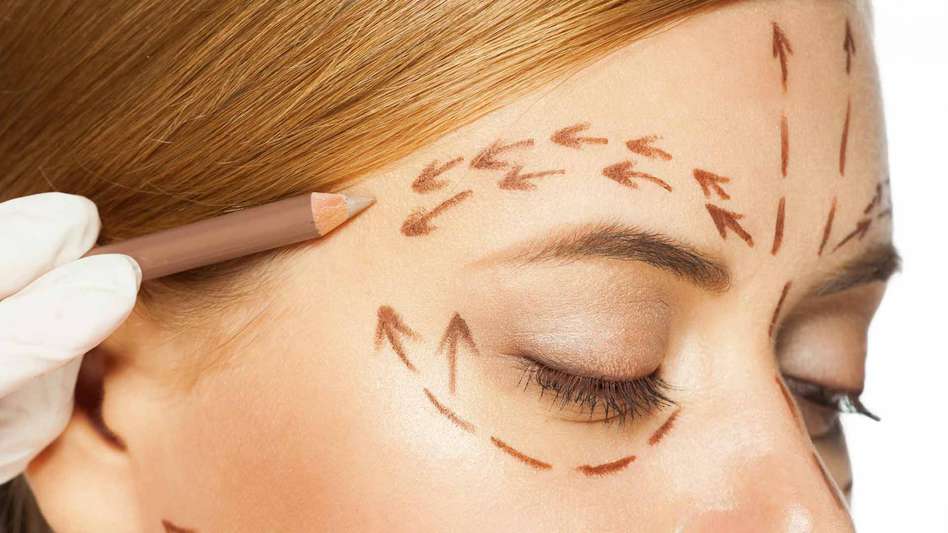Medical Negligence: Plastic surgery claims

Figures suggest that plastic surgery procedures are starting to become popular again, as more people opt to go under the knife. Sarah Stocker, Solicitor in Tees’ medical negligence team in Cambridge, examines the plastic surgery landscape.
- Your options if plastic surgery goes wrong
- Tees can help you make a compensation claim if:
- The risks of plastic surgery
- What to look out for before you get cosmetic surgery
Your options if plastic surgery goes wrong
Many claims arise out of a failure by doctors to adequately inform patients as to the risks and potential complications of their procedure. If you aren’t properly informed about the procedure, you cannot consent to the risks involved. This is known as informed consent.
As of June 2016, the surgeon performing the surgery must personally discuss the risks and potential complications of the procedure with you. This way, your surgeon can obtain your informed consent. Prior to 2016, the consenting process could be delegated to another person - but you still should have been told all of the risks and signed a consent form before the surgery.
Even if the surgery is successful, problems can arise after the operation. You should be given adequate aftercare following the procedure, as this is vital to your recovery. You must be given any medication your require following the procedure prior to discharge and you must be given the details of your surgeon or another named suitably qualified person to contact out of hours if you suffer complications.
Tees can help you make a compensation claim if:
- You were not adequately informed and did not receive enough information about the risks and complications of the surgery, and therefore could not give your informed consent
- Your surgery was not performed to the expected standard (if you suffer from continued pain, have scarring or asymmetry)
- Your surgery was carried out by someone not suitably qualified
- A defective product was used (such as a faulty or damaged implant)
- You did not get the right aftercare (you did not receive follow up appointments, incorrect medication or delayed treatment for post-operative infections).
If you need legal advice, call for a FREE initial consultation on 0800 013 1165
The plastic (or cosmetic) surgery industry hit a record high in 2015, and was worth an estimated £3.6billion. A staggering 51,140 cosmetic surgeries were performed in 2015 in the UK. However, data released by the British Associated of Aesthetic Plastic Surgeons (BAAPS) reveals that in 2016, the number of cosmetic surgeries dropped by 40%.
For over a decade, the cosmetic surgery industry has enjoyed consistent growth – so what has changed? Some commentators have linked the decline to changing perceptions in society, and the growth of social media personalities. More fashion and beauty campaigns feature ‘real’ men and women, and focus on ‘natural beauty’. The BAAPS, however, drew a link between financial constraints and the declining numbers – commentating that “in a climate of global fragility, the public [is] less likely to spend on significant alternations and become more fiscally conservative”.
In 2016, the guidelines for cosmetic procedures were changed. The changes were made to help stop rogue practitioners, who put profits before patient safety. Most cosmetic surgeries proceed without issue – but, as with any surgical procedure, there is an element of risk.
The risks of plastic surgery
The Royal College of Surgeons define cosmetic surgery as an operation or invasive medical procedure to change their physical appearance for cosmetic rather than medical reasons.
Women account for 91% of all cosmetic surgeries. The most popular procedures amongst women are: breast augmentation and reductions; eyelid surgery; face and neck lift; liposuction; and rhinoplasty (nose jobs). Among men, rhinoplasty remains the most popular procedure.
In June 2016 the General Medical Council (GMC), the body responsible for regulating doctors in the United Kingdom, made it clear that in relation to cosmetic procedures, doctors must not:
- make unjustifiable claims about the procedures
- trivialise the risks involved
- use promotional tactics that might encourage people to make ill-informed decisions (i.e. special offers, time limited offers, discounts, buy one get one free deals and winning surgery as a prize is now banned).
In addition, doctors performing cosmetic surgery must also market their services responsibly (i.e. be factual, clear and not misleading).
What to look out for before you get cosmetic surgery
Any surgical procedure comes with an element risk, and it’s important that you are aware of the risks associated with cosmetic surgery.
When considering whether or not to undergo cosmetic surgery it is important to have realistic expectations. This includes both the physical result you are expecting to see, and the psychological impact of invasive surgery.
Your surgeon should not promise you perfection, or that the surgery will change your life. You should not be rushed or pressured into surgery. If you feel pressured at any stage during your consultation, consider a different practice.
Prior to undergoing surgery you should be given the opportunity to meet the surgeon who will performing your procedure. They should be fully insured to carry out the procedure in the UK. In addition, following the introduction of the GMC guidance in 2016, surgeons must be certified in the area of cosmetic surgery in which they practise. So, your surgeon should be on the GMC Specialist Register in a relevant surgical specialty. You can check if your surgeon is registered on the GMC website.
In June 2017, proposals were made to the government to try and further protect patients undergoing cosmetic surgery. The proposed changes would allow patients planning cosmetic surgery to check whether their doctor has the relevant qualifications to perform their surgery.
The current position allows any doctor to perform cosmetic surgery, even if they have no formal training in carrying out such procedures. The new proposals would allow the GMC to note on the medical register, which is available to the general public, which doctors have been awarded a certificate in cosmetic surgery by the Royal College of Surgeons.
There have also been calls to ban cosmetic procedures in under 18s after the recent scandal whereby children as young as 10 were being targeted by cosmetic surgery apps in an attempt to normalise invasive treatments to vulnerable and impressionable young girls.
If you have suffered complications before, during or after cosmetic surgery contact us today
Call for a FREE initial consultation on 0800 013 1165 Alternatively, fill out our enquiry form and one of our Cosmetic Surgery specialists will get in touch.
Tees is here to help
We have many specialist lawyers who are based in:
Cambridgeshire: Cambridge
Essex: Brentwood, Chelmsford, and Saffron Walden
Hertfordshire: Bishop's Stortford and Royston
But we can help you wherever you are in England and Wales.
Chat to the Author, Sarah Stocker
Associate, Medical Negligence, Cambridge office
Meet Sarah
- Areas of expertise
- Accreditations
- Testimonials
Mr E
Cambridge
'I was extremely satisfied with the overall professionalism of the people I dealt with, particularly of Sarah Stocker, who acted as my usual contact. I needed personal and empathetic handling of my case and that is exactly what I received'
Georgia Rebane
Peterborough
'Sarah really went the extra mile to help me try to understand the legal process. I've never been through anything like this before, so was very grateful to have someone as caring as Sarah to help get a fair outcome'
Mrs V
Chelmsford
'Sarah Stocker explained my medical negligence case, and the likely outcome, very clearly. She kept me fully informed throughout the process and was extremely compassionate and professional. My claim was successfully settled and I'm extremely grateful for the help Sarah gave me and my family'
Barry Skingley
Saffron Walden
'I would recommend Sarah Stocker to anyone who has a similar claim. I could not fault any part of my negligence claim. It was carried out professionally and in a sympathetic way. Throughout the process I was kept informed at every stage. The financial settlement was well above my expectations'
Mrs. C
Bishop's Stortford
'Sarah Stocker’s input into my case was of the highest standard. She was supportive, caring and empathetic. She informed me of details of my and case and gave me feedback as soon as she got it. There was always good communication, Sarah would spend time in phone calls explaining the process. She would always follow up with hard copies on how my case was progressing and she accessed excellent expert reports from the medical profession. Sarah gave very good advice, support and guidance'
Mrs. C
Dunmow
Sarah Stocker explained my medical negligence case, and the likely outcome, very clearly. She kept me fully informed throughout the process and was extremely compassionate and professional. My claim was successfully settled and I'm extremely grateful for the help Sarah gave me and my family.



